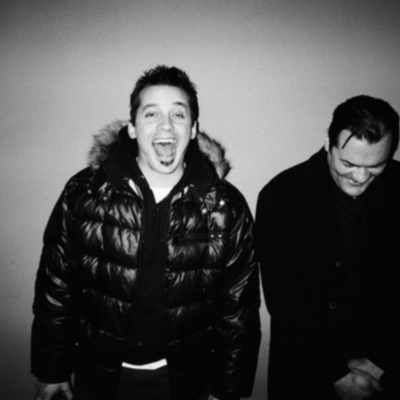F. Scott Fitzgerald’s short story about a man who is born old and ages backwards has been in print for nearly nine decades. That’s a whole human lifetime, in which so much has happened that by now it seems perfectly fair for a film adaptation of The Curious Case of Benjamin Button to change things around some.
Fitzgerald’s story is a wry, class-conscious dissection of propriety as a function of physical appearance. The Benjamin Button of the page is a man whose family considered his difference deliberately contrary and inconsiderate, on account of the social embarrassment it engendered, and whose one true love inevitably lost all appeal for him, on account of her failure to keep up with his progressive vitality. Not that it mattered to the society busybodies who never approved of their marriage—first, because Benjamin seemed too old for his bride, and later because he seemed too young.
|
“I just had the strangest dream…” Brad Pitt ages backwards, much to the momentary joy of Cate Blanchett, in The Curious Case of Benjamin Button. |
The movie version, as adapted by screenwriter Eric Roth for director David Fincher, mostly does away with those concerns in favor of a broader, more romantic and melancholic rumination on fate and mortality—or, to put it in terms ruefully repeated by a few of its characters, the related notions than “nothing lasts” and “you never know what’s coming for you.”
True enough: Most of us fall apart as we age, but this lucky son of a bitch turns into Brad Pitt. And although it takes a few heartbreaking tries, and is all the more achingly beautiful for its evident impermanence, he winds up in a passionately amorous idyll with Cate Blanchett—right when they’re both at their most radiantly aware of all that life may contain. Fincher knows we can’t take our eyes off them, and he generously lets us look.
The requisite apprehensions about turning a story of only a few pages into a film of feature length are promptly dispatched—or, well, protractedly dispatched; this Curious Case takes up nearly three hours. In something like the way Fincher’s Zodiac, too, was defensibly overlong in order to convey the procedural tedium of investigative police work, this film also uses time as a narrative tool, to steep us in wistful awareness of its irrevocable passage. (Beware, too, of Tilda Swinton, too briefly bearing caviar and vodka in a Russian hotel.) It is consciously more affecting than its source material. It is also more affected.
Much of the action is, as Fitzgerald wrote, “bathed in a honey-colored mist,” and Fincher minds the technical details with his characteristic exactness and enthusiasm. But the director’s best efforts can’t undo the faults of Roth’s script—most obviously, that it has less in common with Fitzgerald’s original than with Roth’s own adaptation of Forrest Gump.
Where Forrest had shrimp, Benjamin has buttons. (Yes, seriously.) Where Forrest had a lone white feather drifting on the winds of chance, Benjamin has a hummingbird. (Don’t ask.) The men of both films are well traveled, with adventures ranging from war on ocean waters to platitudes on park benches. Both narrate their own tales, although Benjamin has help from his beloved Blanchett at her own life’s end, sharing memories with her daughter (Julia Ormond) from a New Orleans hospital deathbed.
One important difference is that Benjamin Button seems more likely to endure. After all, for at least one lifetime, he already has.






